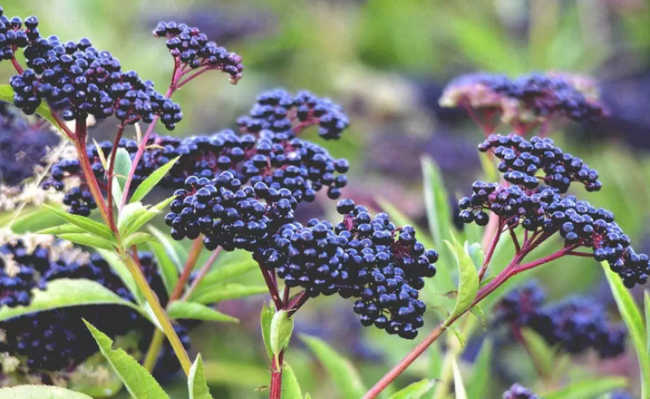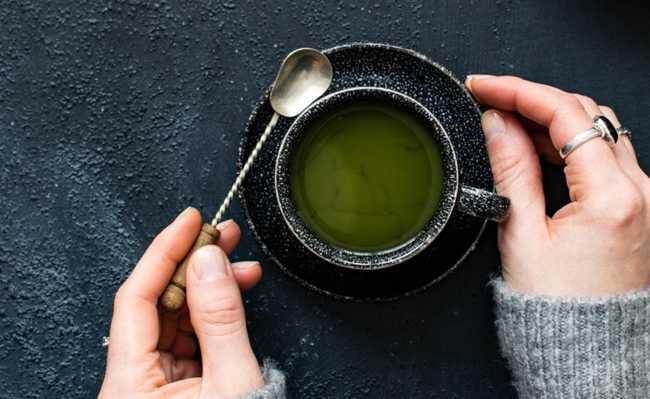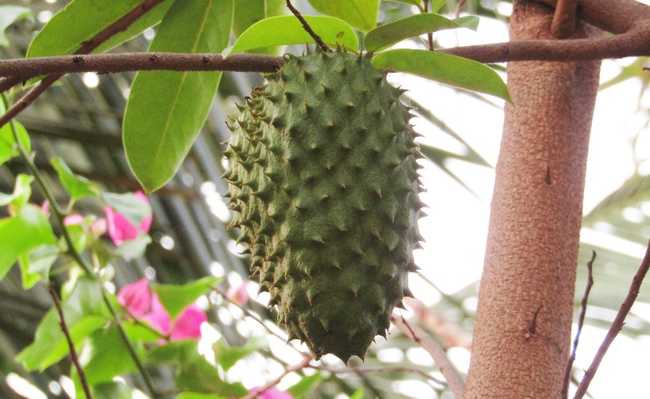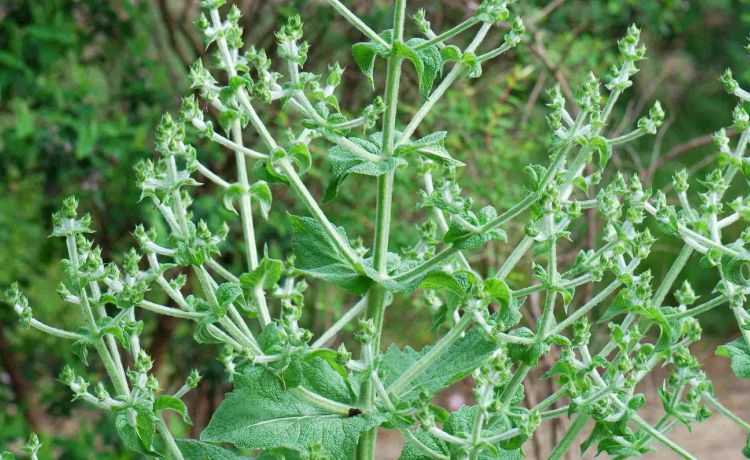Elderberry: risks and benefits
Elderberry is widely used to treat flu and cold symptoms, but depending on how it is used, it can be harmful.

Resized and edited image of Healthline
The elderberry, naturally occurring in Europe and North Africa, is one of the most used medicinal plants in the world. Traditionally, Native Americans used it to treat infections, and ancient Egyptians used it to heal burns and care for beauty. Today, elderberry is widely used to treat cold and flu symptoms.
However, its unripened fruits, bark and leaves are also known to be highly toxic and cause stomach problems. Understand:
What is Elderberry?
The term "Elderberry" refers to the varieties belonging to the genus Sambucus. The most common type is the sambucus nigra, also known as European elderberry or black elder. Despite being native to Europe, elderberry is widely cultivated in various parts of the world, including Brazil (see studies about it here: 1, 2). It grows up to nine meters tall and has bunches of small flowers, which bloom in white and cream. The fruit is found in black and dark blue colors, and it also grows in bunches.
Elderberry fruit is very sour and needs to be cooked for consumption. The flowers have a delicate aroma and can be consumed in raw and cooked formats.
traditional uses
Historically, elderflower flowers and leaves have been used to relieve pain, swelling, inflammation, and to stimulate urine production and induce sweating. The bark was widely used as a diuretic, laxative and inducing vomiting (see study about it here: 1).
In folk medicine, dried fruit or its juice is used to treat flu symptoms, infections, sciatica, headache, toothache, heart pain and nerve pain, as well as to obtain laxative and diuretic (see study about it here: 2).
Also, elderberries can be cooked and used to make jellies, chutneys, pies and wine. The flowers are boiled with sugar to make syrup or tea. And they can also be consumed fresh in salads (see study about it here: 1).
health benefits
There are many benefits in elderberry. It's not only nutritious, it can also fight cold and flu symptoms, support heart health, and fight inflammation and infections, among other benefits.
Nutrients
Elderberry berries are low-calorie foods packed with antioxidants.
One hundred grams of elderberry contains 73 calories, 18.4 grams of carbohydrates and less than 1 gram of fat and protein (see study about it here: 3).
- Antioxidants: what are they and in what foods to find them
In addition, it contains:
- High vitamin C: there are 6–35 mg of vitamin C per 100 grams of elderberry berry, which represents up to 60% of the recommended daily intake - IDR (see studies on this: 3, 4);
- Rich in dietary fiber: there are 7 grams of fiber for every 100 grams of elderberry berry, which represents more than a quarter of the fiber RDI (see study about 4 here);
- It is a source of phenolic acids: these compounds are powerful antioxidants that can help reduce the damage of oxidative stress in the body (see studies about it here: 4, 5);
- Good source of flavonols: Elderberry contains the antioxidant flavonols quercetin, kaempferol and isorhamnetin. The flowers contain up to 10 times more flavonols than the fruit (see study about it here: 4);
- Rich in anthocyanins: these compounds give the fruit its characteristic dark purple-black color and are a source of antioxidants with anti-inflammatory effects (see studies about it here: 4, 6).
- Anthocyanin present in red fruits brings benefits
The exact nutritional composition of the elderberry depends on the variety of the plant, the ripeness of the fruit and the environmental and climatic conditions. Therefore, its nutritional composition may vary (see studies about it here: 4, 7).
May improve cold and flu symptoms
One study found that extracting elderberry fruit and infusing its flowers reduced the severity and duration of the flu (see study here: 8).
Another study of 60 people who had the flu found that those who took 15 ml of elderberry syrup four times a day showed improvement in symptoms in two to four days, while the control group took seven to eight days to improve (see the study here: 9).
Another study of 64 people found that taking 175mg lozenges of elderberry extract for two days resulted in significant improvement in flu symptoms, including fever, headache, muscle aches and nasal congestion, after just 24 hours (check out the study here : 10).
In addition, a study of 312 travelers who took capsules containing 300 mg of elderberry extract three times a day found that those who had a cold had a shorter duration of illness and less severe symptoms (see study here: 11).
Rich in Antioxidants
The flowers, fruits and leaves of the elderberry are excellent sources of antioxidants. The anthocyanins found in the fruit have 3.5 times the antioxidant power of vitamin E (see studies about it here: 4, 15, 16, 17).
A study comparing 15 different varieties of elderberry fruit and another study comparing types of wine found that elderberry contains one of the most effective antioxidants (see studies on this here: 18, 19).
Can be good for heart health
Elderberry may have positive effects on some heart and blood vessel health markers.
Studies have shown that elderberry juice can reduce blood fat and lower cholesterol. In addition, a diet rich in flavonoids such as anthocyanins reduces the risk of heart disease (see studies on this here: 17, 22).
On the other hand, another study carried out with 34 people who received 400 mg of elderberry extract (equivalent to 4 ml of juice) three times a day for two weeks found no significant reduction in cholesterol levels (see the study about it here: 23 ).
One study found that elderflowers inhibit the enzyme α- glucosidase, which can help lower blood sugar levels. In addition, research carried out on diabetic rats that received elderberries showed better control of blood sugar (check the studies about it here: 4, 15, 28).
Despite these promising results, a direct reduction in heart attacks or other symptoms of heart disease has yet to be demonstrated, and more human studies are needed.
Other health benefits
There are many other benefits of elderberry, although most of them have limited scientific evidence:
- Fights harmful bacteria: Elderberry has been found to inhibit the growth of bacteria such as Helicobacter pylori and it can improve the symptoms of sinusitis and bronchitis (see study about it here: 8);
- Improves the immune system: In rats, elderberry polyphenols were found to improve the immune defense by increasing the number of white blood cells (see study about it here: 30);
- Protects against UV radiation: A skin product containing elderberry extract had a sun protection factor (SPF) of 9.88 (see study about 31 here);
- It has a diuretic effect: Elderberry flowers increase the frequency of urination and salt excretion in rats (see study about it here: 32);
- It has antidepressant properties: One study found that mice fed 544 mg of elderberry extract (1,200 mg per kg) performed better on mood markers (see study about it here: 33).
While these results are significant, further analysis in humans is needed to determine whether elderberry effects are actually effective.
Also, it is important to note that there is no standardized method to measure the number of bioactive components such as anthocyanins in these commercial products.
One study showed that, depending on the method used to measure anthocyanins, a supplement could claim to contain 762 mg/L, but actually only contain 4 mg/L. Therefore, determining the effects of currently available products can be difficult (check out the study about: 17).
Health risks and side effects
The immature bark, fruit and seeds of the elderberry contain small amounts of substances known as lectins, which can cause stomach problems (see study about it here: 2).
In addition, elderberry contains substances called cyanogenic glycosides, which can release cyanide in some circumstances.
There are 3 mg of cyanide in every 100 grams of elderberries and 3 to 17 mg in every 100 grams of fresh leaves. This represents 3% of the estimated fatal dose for a 60 kg person (see studies about it here: 2, 35).
However, commercial preparations and cooked fruits do not contain cyanide. Symptoms when ingesting uncooked elderberries, leaves, bark or roots include nausea, vomiting and diarrhea (see study about it here: 2).
There is a report of eight people who became ill after drinking freshly picked fruit juice, including leaves and branches, of the variety S. Mexican. They experienced nausea, vomiting, weakness, dizziness, numbness and lethargy (see study about it here: 36).
Fortunately, toxic substances found in the fruit can be safely removed through cooking. However, the branches, bark or leaves should not be used in cooking or in juice (see study about it here: 2).
If you are collecting elderberries or flowers, make sure you have correctly identified the plant as an American or European elderberry, as other types can be more toxic. Also, be sure to remove any bark or leaves before using.
Elderberry is not recommended for children and adolescents under the age of 18 or pregnant or nursing women. Although no adverse events were reported in these groups, there is not enough data to confirm that it is safe to ingest (see study about it here: 2).
Adapted from Healthline










